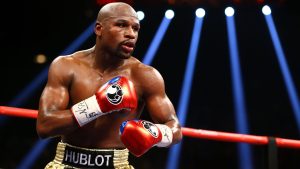He has litigated every type of intellectual property issue, including patent, trademark, trade dress, trade secret, and copyright cases. In addition, he has served as a court-appointed special master over intellectual property issues and has also testified as an expert witness in numerous, highly technical business tort and patent litigation matters.
How does he do it? In this insightful interview, he shares how he recovers millions of dollars in his cases and why IP law and the way damages are handled should change.
As it stands now in patent infringement damages, in many ways, it is convoluted with respect to the calculations and oftentimes too complex and have nothing to do with damages that occurred to the plaintiff.
You have litigated every type of IP issue, from trademarks to copyrighting; which type of issue is the most challenging and why?
The type of issue in the IP area most challenging is patent infringement findings and damages. The damages aspect is simply over-technical and unrealistic; I believe that in this instance, IP infringement damages should be handled more like negligence damages or even fraud damages. Findings of infringement appear to be more and more controlled which is thus limited by the type of business that wants to get away with theft.
How would it benefit you and the client if these damages were handled more like negligence of fraud damages?
As it stands now in patent infringement damages, in many ways, it is convoluted with respect to the calculations and oftentimes too complex and have nothing to do with damages that occurred to the plaintiff. This is the reason to why I state that such claims ought to be handled similar to negligence or fraud damages cases, as the calculations that are concluded here are so easy to calculate yet remain to be of great benefit for the plaintiff.
Prior to IP litigation, what things ought to be ‘checked off’ your list, to ensure you are fully prepared on your client’s behalf?
This can be answered simply: “everything” should be checked off your list in order to be fully prepared, but perhaps the most important is your own Markman claim interpretation before you do anything else. You must try to accurately ascertain, as much as possible, the extent of the conceivable damages, if there are any.
To avoid litigation you need to stay cool, don’t be resolute, don’t slam the table.
What are the common reasons behind patent disputes leading to litigation?
Common reasons behind patent disputes are always, or at least mostly, ego, irritation, revenge, which upon reflection are never good reasons. Irritation and revenge are common factors and the reasons behind a dispute especially if an alleged infringer is taking market share from something you or your company conceived, reduced and practice and protected.
What can businesses do to avoid litigation?
To avoid litigation you need to stay cool, don’t be resolute, don’t slam the table. You ought to be willing to compromise, because, in the end, the lawyers are the winners more often than not.
Proving who is the inventor: Can you share the difficulties of this process, as a lawyer?
In answer to this question, in order to prove who the inventor is, you also need to be able to prove who is not the inventor. In other words, who did not contribute to the claimed invention whilst also trying to define what you mean by “contribute”. It is a process to which your lawyers also need to be aware of, in respect to the listing of people who are inventors and contributed to the claimed invention and what to do when people refuse or cannot or will not be listed as co-inventors.
Written evidence is usually the best.
What evidence ought to be collected in order to assert the real inventor?
Proof that the real inventor contributed to one or more of the claimed inventions. Written evidence is usually the best. This will be in the form of the inventor's notebooks, writings, and/or the company’s notebooks about the daily function and jobs of the inventor and/or co-inventor. Independent oral testimony without cooperation is usually insufficient and I would go as far as saying the oral evidence alone, even if you are cooperating, is insufficient. Evidence in writing is very important for proving the inventor contributed to the invention.
The information data is simply available all across the board to everyone and therefore, it also levels the playing field.
How has the internet impacted the IP sphere? How has this affected the cases you see and handle?
The internet and everything else that is impacted has provided more and faster information as far as the cases we see and even how we handle them.
The information data is simply available all across the board to everyone and therefore, it also levels the playing field.
What are your top three tips for recovering millions in a jury trial?
My three top tips for recovering millions of dollars in a jury trial are: truthfulness, honesty and kindness, where appropriate. IP has changed through activist judges, who may disregard precedent and prior findings relating to the whole ideology. In addition, some courts are reluctant to be involved in the field of IP and there is a trend of local district judges to not try IP cases, versus those who advertise they will take all IP cases.
At the present time, I’m advocating for changes from a legislative or regulatory point of view and I’m very suspect to any changes advocated since I continue to have growing concern regarding the large corporations who want to control and manipulate the patent process for themselves and to the detriment of the small guy.
Guy E. Matthews
GEM/lcm
Matthews, Lawson, McCutcheon & Joseph, PLLC
2000 Bering Drive, Suite 700
Houston, Texas 77057
E-Mail: gmatthews@matthewsfirm.com
Tel: 713-355-4200
Fax: 713-355-9689
My name is Guy E. Matthews and I founded and have been with the firm since the early ‘70s. Prior to that I attended undergraduate school and law school, at the University of Texas and participated in college sports with a football scholarship in the original recruiting class of the legendary Darrell K. Royal. I was a reluctant physicist, and by that, I mean not very good, but I always had in mind a combination of a scientific degree and legal, or some type of business degree. I got into law school by the tip of my tongue and fell in love with it.
After graduation, I worked for the patent office in attended night law school for some advanced courses in patent law and then came back to Houston for full-time employment at the exorbitant rate of $600 a month. In 18 months I was a partner in a firm that hadn’t made a partner in 10 years and I was having the time of my life.
Matthews, Lawson, McCutcheon & Joseph, PLLC was founded to serve two distinct but related purposes: the protection of intellectual property rights and the enforcement of those rights through litigation. Furthering those core purposes, the firm provides services in prosecuting domestic and foreign patent and trademark applications, licensing, and opining, for example, on patentability, infringement, invalidity, and registrability through the Firm’s Intellectual Property Prosecution section, while the Firm’s Litigation section focuses on complex litigation related to intellectual property rights and business torts.
The Firm’s leadership shares over one-hundred years of experience in guiding plaintiffs and defendants through difficult legal issues. We have been successful in a wide variety of cases ranging from injunctions against governmental entities, including the State of Texas, to weeks-long patent infringement trials, to lodging and defending prosecution-related matters before the USPTO and appellate boards and courts.
Our Firm’s practice aims to help clients strengthen their intellectual property rights through prosecution and, when necessary, litigation. However, we recognize that clients do not wish to be in the business of litigation, and to that end, we provide a significant amount of client counseling on litigation avoidance.




















